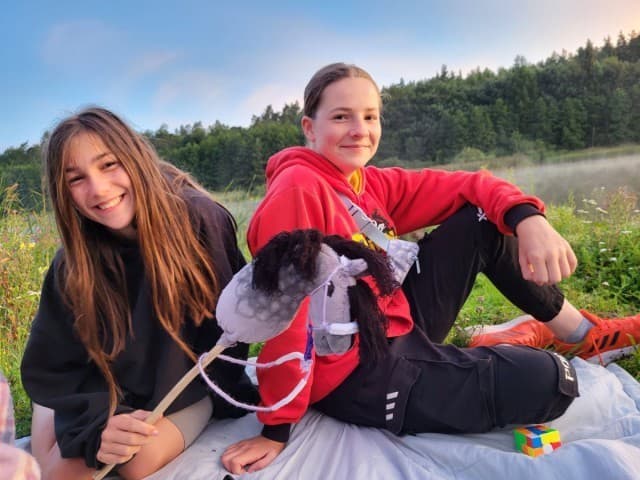Is hobby horse a real sport?

Who Came Up with the Idea of Hobby Horse?
The idea of hobby horse as a sport has its roots in Finland, where it gained popularity in the 1990s. During that time, the first organizations and competitions related to this unconventional sport began to emerge. The initiative stemmed from a love for horses and horseback riding, but in a form that didn't require an actual horse. The first hobby horse competitions took place in Finland, and the sport quickly spread to other countries, especially in Scandinavia. Although the exact person responsible for "inventing" the hobby horse is unknown, Finland and other Nordic countries played a key role in its development and popularization.
Characteristics of Hobby Horse
Hobby horse is a sport in which participants mimic riders by riding on wooden or fabric ponies mounted on sticks. The distinctive features of this sport are:
- Jumping over obstacles – Participants compete in jumping over obstacles, simulating horseback riding.
- Technique and coordination – It requires good motor coordination, balance, and precision.
- Equipment – Special hobby horses are used, which are sticks resembling horses.
- Competitions and rivalry – Hobby horse has its own competitions, in which participants are judged on their skills in various events.
- Passion and commitment – Participants, often younger people, treat hobby horse with passion, competing at either professional or amateur levels.
- It is a sport that requires both physical fitness and an element of fun and imagination.
Why Does Hobby Horse Cause Controversy?
Hobby horse stirs controversy because it is not traditionally regarded as a legitimate sport. Critics often point out that the lack of a real horse and the more playful nature of this activity might lead people to see it as a game rather than a competitive sport. Additionally, some argue that the absence of physical contact with an animal, which is a crucial element in many equestrian sports, weakens the authenticity of hobby horse. On the other hand, supporters argue that it is a sport requiring precision, coordination, and commitment, with its own specific features that deserve recognition.
Is It Worth Buying a Hobby Horse?
Hobby horse is a great way to engage in physical activity, improve coordination, balance, and strength, and is also an excellent form of play and creativity.
It’s worth buying a hobby horse if:
Your child is passionate about horseback riding and wants to try their hand at sports competition.
They want to develop motor skills and increase their physical activity.
You wish to nurture their passion in a fun way, without the need for a real horse.
However, if the interest in this sport is only temporary, it might be worth considering whether investing in a hobby horse makes sense in the long term.
What Is the Record for Jumping on a Hobby Horse?
The record for jumping over an obstacle on a hobby horse is 145 cm, set by Finnish competitor Milla Juntunen. In Poland, the record stands at 137 cm, held by Natalia Kończak. It’s also worth mentioning that during the Hobby Horse Cup at Blue City, competitor Kht_karis set a new jumping record of 142 cm.
Where Can I Find a Hobby Horse Camp for My Child?
Among the hundreds of offers on the portal gofunlo.com, you'll also find those focused on hobby horse.
Mini Camp Lipiany – 5-Day Pony Camp for the Youngest is a unique opportunity for children aged 7-12 to experience their first summer adventure with horses – both live and with a hobby horse! The hobby horsing activities – riding on a stick horse – combine movement, imagination, and great fun, giving the youngest a sense of joy and success, regardless of their riding skills.
Hobby Horse Camp in Kashubia is a true celebration for all young fans of horses and movement. Here, children will not only learn how to ride a hobby horse but also create their own pony, participate in races, obstacle courses, and artistic workshops! Located by a lake, surrounded by nature and a real stable, this camp is the perfect space for fun, creativity, and experiencing equestrian adventures – even without riding a real horse.
Photo: courtesy of Active Tourism Office Kompas
See also:

